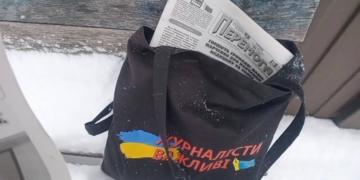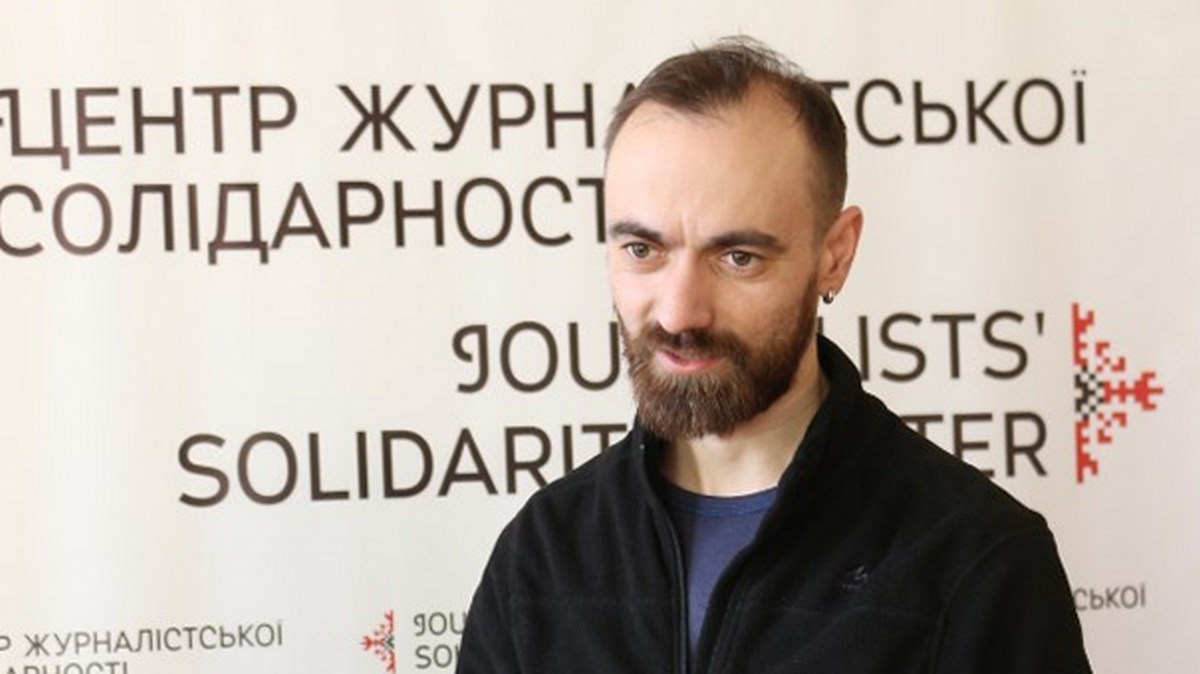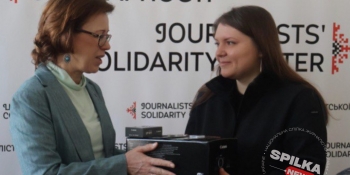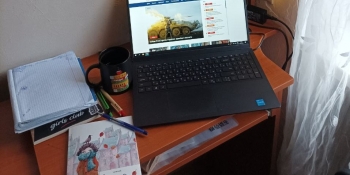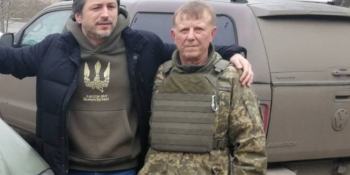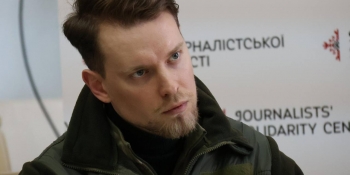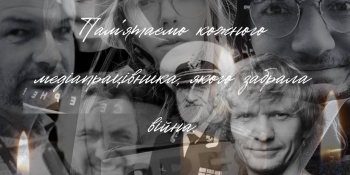“Volunteers who go to hot spots always face danger, and when it comes to the work of a journalist, the risk increases many times,” says Maksym Kozmenko, a Chernivtsi photojournalist and volunteer, who personally visited Kharkiv Region and Bakhmut when it was no so “hot” as it is there now.
The Journalists’ Solidarity Center in Chernivtsi hosted a training session entitled Trips to Hot Spots: How to Behave as a Journalist during a Business Trip to an Area of Hostilities. The participants in the event were displaced journalists who currently live in Chernivtsi, students of the Department of Journalism at Fedkovych Chernivtsi National University, as well as representatives of the local media learned firsthand about the peculiarities of the work of a journalist who wants to convey the spirit of war, the existence of the military armed forces, the tolerance of a Ukrainian citizen, and most importantly “the irresistible faith in our Victory as meaningfully and impartially as possible.
“It is necessary to carefully prepare for the trip, first of all, psychologically. When you get even to a front-line town, you can even smell that the hostilities are taking place very close. At first, there is a desire to shoot the most exclusive shots. But common sense prevails, and when the military insists on something, it must be done. A journalist’s life depends mostly on this,” Maksym shares his convictions.
“Perhaps not all training participants will have to work directly in hot spots or even in the front-line zone. But being familiar with the rules of behavior in the territory, where you can systematically hear cannon explosions or the roar of bomber engines, does not hurt anyone,” the Chernivtsi Journalists’ Solidarity Center notes.
As earlier reported, the Journalists’ Solidarity Centers are an initiative of the National Union of Journalists of Ukraine (NUJU) implemented with the support of the International and European Federations of Journalists, as well as UNESCO. The initiative is designed to help media representatives working in Ukraine during the war. The centers operate in Kyiv, Lviv, Ivano-Frankivsk, Chernivtsi, Zaporizhzhia, Dnipro and provide journalists with organizational, technical, legal, psychological and other types of assistance.
You can call the Journalists’ Solidarity Center in Chernivtsi 068 286 3706 (Volodymyr Bober, the coordinator of the Chernivtsi Center). The address is 96, Nezalezhnosti Avenue.
UNESCO is the United Nations Educational, Scientific and Cultural Organization. It contributes to peace and security by promoting international cooperation in education, sciences, culture, communication and information. UNESCO promotes knowledge sharing and the free flow of ideas to accelerate mutual understanding. It is the coordinator of the UN Action Plan on the Safety of Journalists and the Issue of Impunity, which aims to create a free and safe environment for journalists and media workers, thus strengthening peace, democracy, and sustainable development worldwide. UNESCO is working closely with its partner organizations in Ukraine to provide support to journalists on the ground.
The designations employed and the presentation of material throughout this digest do not imply the expression of any opinion whatsoever on the part of UNESCO concerning the legal status of any country, territory, city or area or its authorities, or concerning the delimitation of its frontiers or boundaries. The authors are responsible for the choice and the presentation of the facts contained in this digest and for the opinions expressed therein, which are not necessarily those of UNESCO and do not commit the Organization.
NUJU information service





